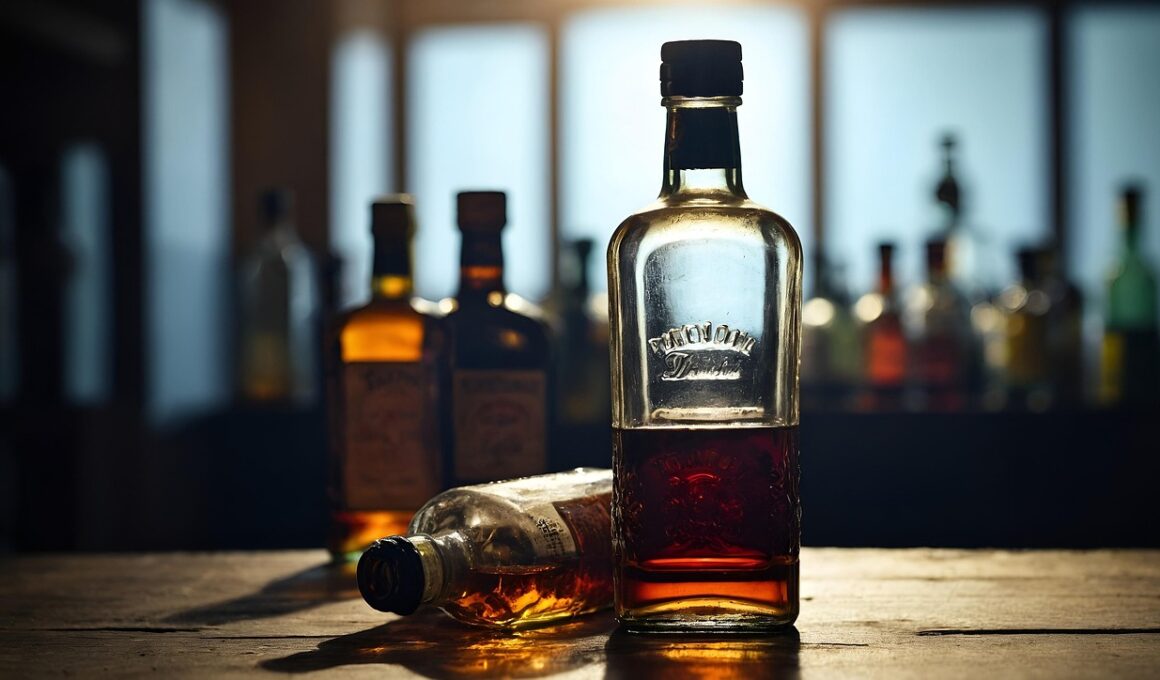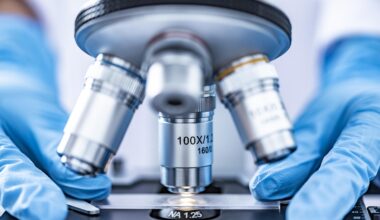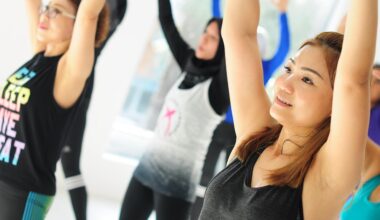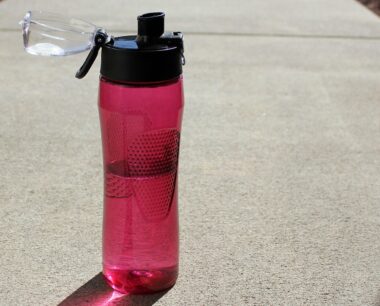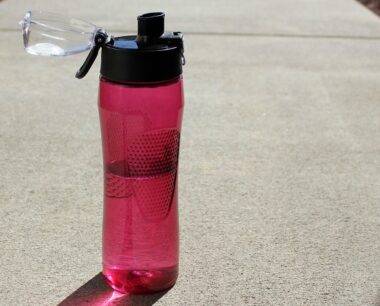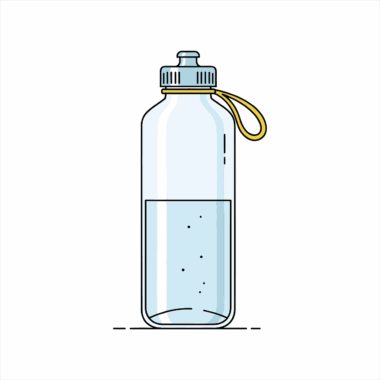How Alcohol Consumption Affects Post-Exercise Hydration
Hydration is a crucial factor in optimizing athletic performance and recovery. Post-exercise hydration strategies must take various factors into account, especially alcohol consumption. Alcohol can significantly impact the body’s ability to recover after physical exertion. Dehydration sets in quicker when alcohol is consumed because it acts as a diuretic. This means that it encourages increased urine production, leading to greater fluid loss. Exercising while being dehydrated impairs physical performance and can lead to heat-related illnesses. Therefore, understanding the relationship between alcohol and hydration is essential for athletes. When you consume alcohol, your body needs more time to rehydrate because hydration is compromised. This means that post-exercise alcohol consumption can affect your recovery. Athletes should prioritize fluid intake that replenishes electrolytes, particularly sodium and potassium, lost during exercise. Gatorade, coconut water, or electrolyte tablets can be advantageous. Therefore, ensuring adequate rehydration after exercise should include avoiding alcoholic beverages. Furthermore, if you do choose to drink, be conscious of your overall hydration levels throughout the day.
The effects of alcohol on hydration go beyond the immediate aftermath of drinking. When you consume alcohol, it can lead to a decrease in the body’s overall fluid balance. This becomes particularly relevant after physical activity, where rehydration is vital for recovery. The risks associated with consuming alcohol post-exercise are often overlooked, despite their significance. Alcohol consumption impedes the secretion of vasopressin, also known as antidiuretic hormone (ADH). This hormone’s reduced levels lead to increased urine output and, consequently, dehydration. Therefore, if hydration is not restored adequately after exercising, the risk of cognitive fatigue, muscle cramping, and reduced performance increases. Additionally, alcohol can further interfere with sleep quality, which is essential for recovery. Quality sleep is often hindered by alcohol, which can also lead to poor mental focus and decision-making ability the following day. In athletes, maintaining peak performance levels is crucial, which is why it is essential to manage alcohol intake according to individual hydration needs and recovery goals. Ultimately, the key to post-exercise hydration is enough fluids, avoiding excessive loss from alcohol consumption.
Understanding Hydration Needs
Hydration needs can vary significantly based on factors like the duration and intensity of exercise. Individuals engaged in endurance sports must be particularly mindful of their hydration practices. Core considerations include not only the timing of hydration but also the type of fluids consumed. While water is essential, beverages containing electrolytes can play a crucial role in rapid rehydration. The presence of carbohydrates in drinks like sports drinks can help replenish energy stores, aiding recovery. Conversely, alcohol offers no benefits in replenishing lost electrolytes and inhibits the body’s ability to absorb fluids. Furthermore, recognizing personal hydration requirements is essential, as factors such as climate, activity level, and individual health conditions can influence these needs. When considering alcohol consumption in conjunction with exercise, it is crucial to remember that prioritizing hydration should remain at the forefront. Always take into account how much fluid was lost during exercise and make necessary adjustments. Drinking fluids before, during, and after exercise is critical. In addition, athletes should adopt the habit of monitoring their hydration levels, especially if they choose to consume alcohol post-exercise.
Beverages that contain both alcohol and caffeine can further complicate hydration. Caffeinated drinks also act as diuretics, which can exacerbate the diuretic effects of alcohol. If work out sessions are intense, the combination can lead to severe dehydration. Commonly consumed beverages like alcoholic cocktails are filled with not just alcohol, but can also contain sugars and other additives. These components complicate recovery further. It’s important to be aware that although many believe they can hydrate with beer or other alcoholic drinks, this perception is misguided. Such beverages should not be considered substitutes for proper hydration practices. Research has shown that alcohol consumption can lead to an increased heart rate while exercising, likely due to the dehydration it causes. This increased heart rate can hinder performance and should be considered by anyone engaging in physical activity paired with alcohol consumption. Instead of potentially harmful options, athletes should focus on hydration strategies that are supportive of endurance performance. Therefore, knowing the risks of alcohol during exercise can guide better choices.
Strategies for Rehydration
To ensure adequate hydration post-exercise, athletes should establish effective rehydration strategies tailored to their individual needs. A key strategy includes tracking fluid intake before, during, and after exercise to ensure rehydration is consistent. Encouraging hydration right after a workout helps replace fluids lost through sweat and urine. Consuming water is fundamental, but supplementing with electrolyte sources can enhance the body’s absorption of fluid. Soft drinks, coconut water, and nutrient-rich drinks are alternatives that can be beneficial. These drinks can make the rehydration process more efficient and enjoyable. Athletes should also monitor urine color as an easy gauge of hydration levels. Pale yellow indicates good hydration, while darker shades can signal dehydration. It’s recommended to rehydrate with 1.5 times the fluid lost, especially after intense activity, which may require more than typical needs. If alcohol is consumed following exercise, it’s important to increase water intake as a compensatory measure to counterbalance its dehydrating effects. Ultimately, being cognizant of hydration strategies can greatly aid in optimizing recovery and performance following exercise.
There are also various myths surrounding alcohol and hydration that can lead to confusion. Many people believe that light consumption of alcohol won’t significantly affect hydration; however, this assumption can be misleading. Even small amounts can influence your body’s fluid levels, especially post-exercise. Another common myth is that drinking alcohol can accelerate recovery due to its relaxing effects. In reality, alcohol’s sedative properties may hinder the recovery process instead. This clarification is crucial because athletes may mistakenly think they can drink alcohol without any adverse effects. Additionally, some may think that consuming alcohol in conjunction with water is enough to counteract dehydration. This is not always the case. Adequate hydration after exercise requires a calculated approach that considers both the quantity and quality of fluids consumed. Education on the real effects of alcohol on hydration can empower athletes to make informed decisions. By fostering a more accurate understanding of these issues, athletes can minimize the risks associated with post-exercise alcohol consumption. Ultimately, preserving hydration levels enhances performance and well-being.
Conclusion
Ultimately, hydration strategies during and after exercise must account for individual needs. Alcohol consumption can adversely affect post-exercise hydration, leading to increased risks of dehydration and impaired recovery. To maintain optimal health and performance, athletes must recognize the importance of proper hydration practices. When engaging in physical activities, always consider your hydration levels and the possible effects of alcohol. Drinking water and incorporating electrolyte-rich drinks is a better approach when recovering after an intense workout. Additionally, minimizing alcohol intake during the recovery phase can optimize rehydration. Athletes should strive to create a balance that supports their health and performance goals, thus avoiding the potential pitfalls of alcohol consumption. Furthermore, understanding hydration and making informed choices will help improve athletic performance. As individuals reflect on their drinking habits during active times, they should remember their bodies are fundamentally needing replenishment. Prioritize hydration to enhance performance and recovery, ultimately leading active individuals to better overall wellness. It is particularly essential for athletes to develop awareness strategies that can help them navigate hydration effectively in their training routines.
Improved hydration not only boosts physical performance but also contributes to mental clarity and overall well-being. Hence, if athletes take these strategies seriously, they’ll be more likely to meet their hydration goals successfully. Being mindful of alcohol consumption and its effects will ultimately lead to better outcomes. Remember to drink responsibly and during workouts and at social events while keeping hydration in mind to mitigate possible drawbacks. Integrating these hydration strategies, prioritizing electrolyte intake, and staying well-hydrated can help to support athletic performance in a variety of settings. Athletes who recognize the dynamics between alcohol intake and hydration can better manage their recovery processes effectively. Adopting a cautious approach toward alcohol consumption is not just beneficial but necessary for all who engage in rigorous physical activity. By knowing the risks, athletes can support their choice. The knowledge gained through understanding hydration and how it affects workouts will empower you to make healthier choices, setting a foundation for success in fitness and everyday life.
